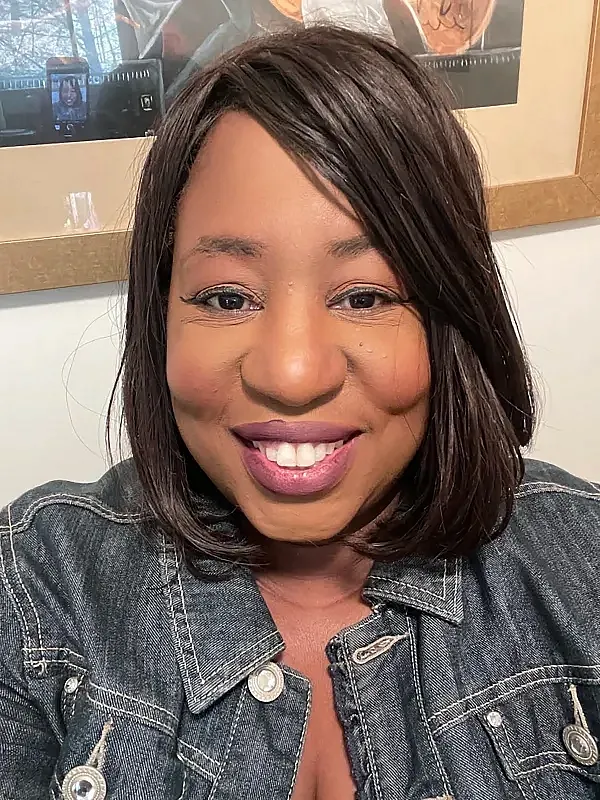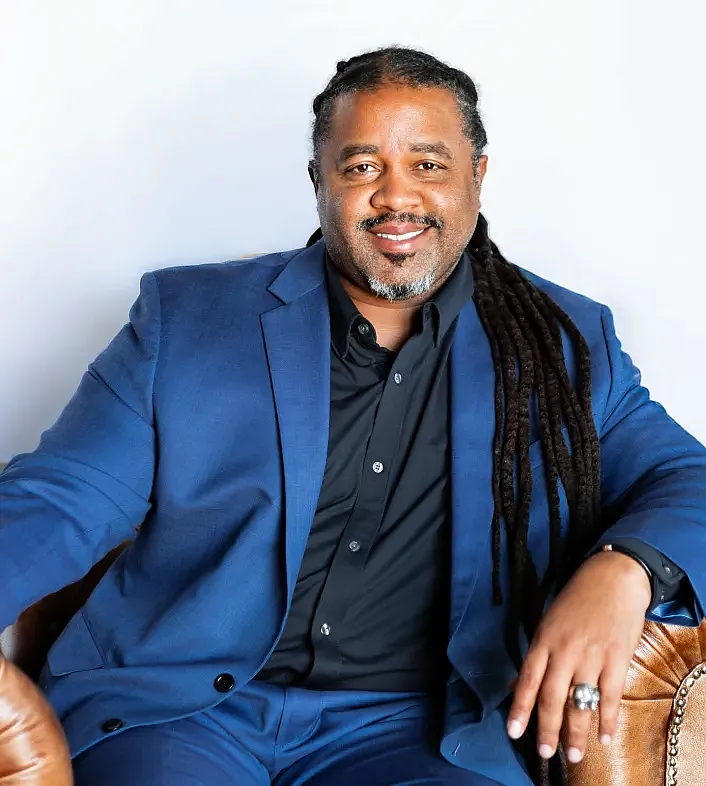Reexamining Transracial Adoption In The Black Community
The story was originally published by The Observer with support from our 2025 Child Welfare Impact Reporting Fund

Rhonda Roorda recalls traveling with her white adoptive family as a child and the feelings she had from people wanting to touch her skin and her hair and being called the N-word.
Courtesy Photo
In late March, a judge awarded a protective order to Jonah Bevin, the adopted son of former Kentucky Gov. Matt Bevin and his ex-wife Glenna.
Jonah Bevin, 18, outlined in court abuse and exploitation he alleges he experienced after being adopted from Ethiopia by white parents. Adopted at age 5, the teenager alleges the Bevins exploited him to enhance the former governor’s political image, and then abandoned him at a Jamaican youth detention center last year when he was no longer deemed useful.
Transracial adoption remains a complex and often debated subject, one that experts Bryan Post and Rhonda Roorda are tackling head-on in their series, “Transracial Adoption Unfiltered: The 6-Week Masterclass for Raising Confident and Resilient Adoptees.”
The series aims to guide families from fear and uncertainty to healing and deep connection, delving into the neuroscience of racial stress and trauma, internal biases impacting parenting, and strategies for navigating daily challenges.
Post is the founder of Fear to Love, an organization focused on trauma-informed parenting and family support. He brings a unique perspective as an adoptee who grew up in a Black family in a predominantly white town. His personal experiences deeply influence his work, which focuses on the often unacknowledged emotional experiences of adoptees.
“There is a lot that is left unspoken and unacknowledged and unhonored by a system that discounts heavily the emotional experience that exists,” Post says.
Society often discounts emotional experiences, leading to many adopted adults feeling bitter and resentful, Post notes. His work with families in pain gives him a firsthand view of the challenges faced.
Post believes that parenting children with “eyes wide open” leads to more compassionate interactions, especially when dealing with the unacknowledged emotional pain many families face.

Bryan Post, a former foster youth and adoptee, is a leading expert in child behavior and adoption.
Courtesy Photo
“If we genuinely want foster care and adoption to work appropriately and foster compassionate and informed approaches to how we care for our children in foster care or adoption placements, as well as caring for them as we live this life as adoptees, I believe that engaging with and listening to those of us who have lived this experience is crucial,” Roorda adds.
Roorda has dedicated her life to amplifying the voices often unheard in the foster-to-adopt community. As a Black child raised by white parents, she shared her personal experiences with the complexities of race and how it impacted her familial ties.
“My life is real. It’s messy, passionate, meaningful, and beautiful,” she says.
Roorda is the co-author of several books, including “In Their Voices: Black Americans on Transracial Adoption,” “In Their Own Voices: Transracial Adoptees Tell Their Stories,” and “In Their Siblings’ Voices: White Non-Adopted Siblings Talk About Their Experiences Being Raised with Black and Biracial Brothers and Sisters.” She also serves as a consultant on the Emmy Award-winning NBC series, “This Is Us,” which stars Sterling K. Brown as a Black man adopted by a white couple.
The first session “only scratched the surface,” Post says. “The questions were powerful, the stories were honest and the need for real, ongoing guidance was undeniable.”
The next session, “Transracial Adoption Unfiltered: Truth, Challenges and Triumphs,” will focus on how transracial adoptees experience adolescence and identity shifts, how parents should respond when their child brings up race, racism, or belonging, and common missteps adoptive parents make and how to course correct.
Post has worked in adoption for 25 years, focusing on trauma with adopted children, foster children, biological families, and grandparent families.
“I just feel like this work is my purpose,” he says.
Post and Roorda, who met 20 years ago, maintain a close connection and hope their work will impact lives, answer questions, shed light where there has been darkness, and help families find more peace.
They addressed the struggles faced by young people searching for their identity and belonging, noting the fragmentation within families.
“These young kids get lost many times in the system and they’re not going back,” Post says. They emphasize the need to provide context for transracial and international adoption.
The first discussion touched on the history of transracial adoption, including the spike in Black and biracial adoptions by white families in the 1970s and the subsequent concerns raised by Black political groups and Native Americans about the loss of children from their communities.
In 1972, the National Association of Black Social Workers denounced transracial adoption, equating it to cultural genocide. Concerns about the lack and loss of cultural connections persist.
Roorda, who was born in 1969, shared her personal story of being placed in a Black foster home and later adopted by a white family. She highlighted the disproportionate number of children in foster care and the desire to expedite placements, but noted that the children often get lost in the process.
Traditionally, studies focused on the comfort of white adoptive parents rather than the experiences of the adopted children. “But no one asked, how are the children doing day to day? No one considered the trauma that that child might face,” Roorda says. She spoke about the erasure of her heritage and the pressure to conform to her adoptive family’s values.
Adoption itself is a compounding, traumatic experience. The belief that a “good placement” will solve all problems is a misconception, Post says.
“That [framework] definitely existed in the ’70s, and it continues to be perpetuated by mainstream social work and mental health and psychology models,” he adds.
The co-hosts critiqued the child welfare system, noting its broken nature and the challenges faced by foster parents and adopted children.
“It’s still a child welfare system that has, in many instances, motives that none of us really understand,” Post says.
He emphasized the importance of acknowledging the child’s history and the complexities of assimilating a child from one family, race, and culture into another. Post and Roorda stressed the importance of validating the child’s experiences and providing support.
“The first step to change is awareness,” Post says.

